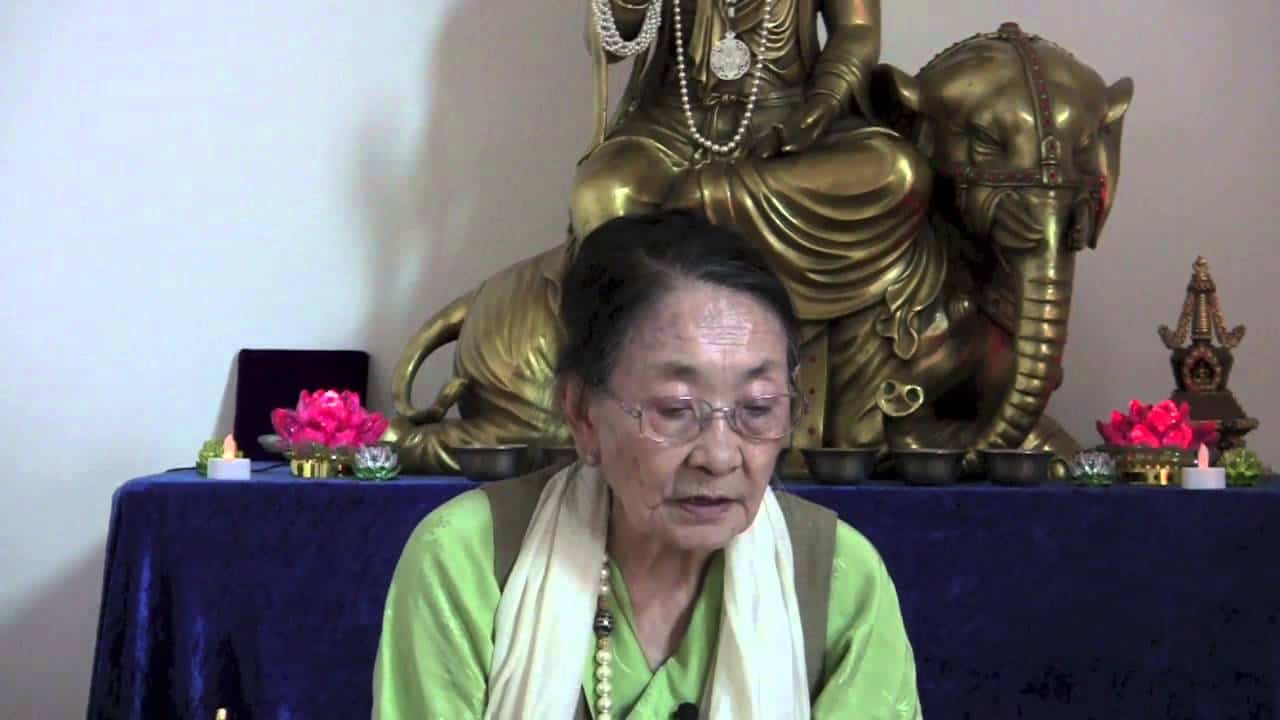Verse 41: The most beautiful to worldly people
Part of a series of talks on Gems of Wisdom, a poem by the Seventh Dalai Lama.
- We often mistakenly trust people who tell us what we want to hear
- Some people are like chameleons, it’s difficult to know who they are
- Sometimes it’s those who criticize us who are the kindest to us
Gems of Wisdom: Verse 41 (download)
Who seems most beautiful to the worldly samsaric people?
Those who act sweetly and give their words like candy.
Okay? “Who seems [who seems] most beautiful to the worldly samsaric people? Those who act sweetly and give their words like candy.”
These are people who, with an insincere mind, want to make a good impression or want to manipulate somebody, and so give their words like candy. Tell you whatever you want to hear so that you like them.
It’s not that these people are always thinking, “Oh, I want to manipulate somebody so I’m going to say this and that.” It can also be out of attachment or out of fear. Somehow we want other people to like us. We’re so attached to reputation, to praise, to approval that we say whatever we think they think we should think. So our words are said like candy—tell somebody what they want to hear and then do whatever you want.
That clearly makes a mess, and it breaks trust, and it just doesn’t work in relationships. But so often we’re very afraid to say what we’re really thinking, or to be straightforward with people, so we tiptoe around and we say things to kind of make it okay even though we don’t really believe what we’re saying.
This is another one where we’ve experienced both sides of the thing. One: where we give our words like candy to other people so that they’ll like us. The second one: when we don’t have much discrimination and we just take in what superficially appears from other people, which is their words that seem like candy. You know, telling us what we want to hear.
I realized about myself some time ago that anybody who says something nice about me, I automatically like and will be my friend. Doesn’t matter whether they mean it or not. Just say something nice, I will be your friend. And realizing how completely gullible that makes somebody. But also, it’s like people saying sweet words isn’t what we should trust. We should look at what’s really going on inside of somebody. And if somebody’s really willing to be honest and to be truthful and say what they think…. You know, because those people then, at least we know what we’re dealing with. The people who say what they think we think they should say, then we don’t really know where they’re at. And so it makes relating to them rather difficult because we have no clue. There are some people who are kind of like chameleons, and so whoever they’re with they change personalities and say what that group of people wants them to say and do what that group of people wants them to do. They kind of lose themselves. And so you don’t really know who they are. And again, it’s not because they’re necessarily evil, conniving people. But they aren’t grounded. So their words come out like candy, and chameleons blending in with anything.
And so for us—when we’re on one side of it—to not rush into things, and to get to know somebody well and not just be very gullible. Not be suspicious and mistrustful either. But not be so attached to people saying nice things about us that whenever they do we believe them and they’re our friend forever. Because that doesn’t work. And then when we’re on the other side, for us ourselves not to be like that with other people, and to be able to be truthful, and sometimes to point out difficult things to people because we care about them.
But then, so often, we like the people who give us candy when they talk. You know? We like that. And we see those people as our friends. And the people who point out difficult things to us, it’s like, “They’re my enemies, they’re criticizing me, I can’t trust them.” But they’re the ones who often are acting with a kind heart. Because they care about us.
We have to develop some discriminating wisdom here, when we’re on both sides. When we’re giving it, when we’re receiving it.
[In response to audience] Job interviews and dating. In a worldly life—because this verse is particularly about worldly life—the two areas of your life that are very important are the ones where you fake it the most and try and create an image. Interesting, isn’t it?
[In response to audience]And also from the side of teachers, sometimes, or older practitioners saying sweet words to gather a group of people around. I mean that’s why the first bodhisattva vow is against praising self and criticizing others to attract a following.
[In response to audience]And sometimes from the student’s side: We want to be the best student and so our words are like candy, too.
I mean, when you’re a serious practitioner the people who point out to us what we need to work on are the dearest people. Because often, like you said, we’re undiscriminating.
Venerable Thubten Chodron
Venerable Chodron emphasizes the practical application of Buddha’s teachings in our daily lives and is especially skilled at explaining them in ways easily understood and practiced by Westerners. She is well known for her warm, humorous, and lucid teachings. She was ordained as a Buddhist nun in 1977 by Kyabje Ling Rinpoche in Dharamsala, India, and in 1986 she received bhikshuni (full) ordination in Taiwan. Read her full bio.


